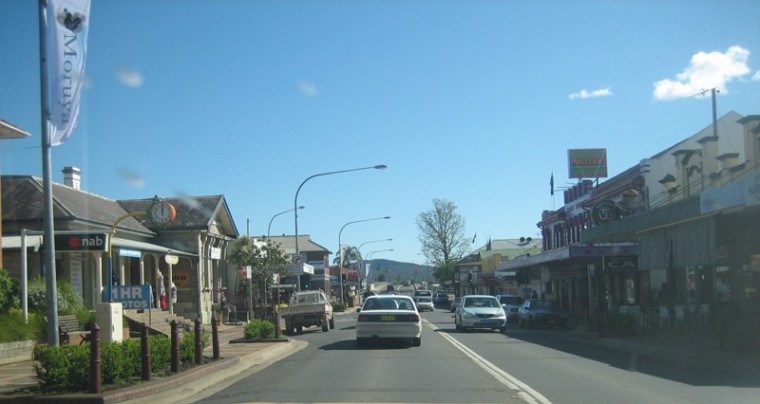
Covid 19 is providing Australians living in cities an unequal opportunity to relocate to rural Australia. Reports yesterday have 210,000 Australians moved out of the major cities to regional and rural Australia. Working from home has made this possible.
News.com meanwhile, ran an article some time ago where Australian families can relocate to rural NSW and rent a reasonable house for $1 a week. Perhaps even on a farm. That’s what rural Aussie towns are offering in a bid to get young families to move in and help repopulate.
This cry has been repeated time and again. In 2019 there were numerous appeals for exactly this.
But there’s a catch. Your children will have to enrol at the local school and you might have to renovate the house a bit. Residents of villages including Cumnock, Molong and Bonshaw are in on the deal.
Cumnock resident Christine Weston, is the driving force behind the Rent-a-farmhouse program and said it was successfully tried back in 2008. But with the previous wave of kids having grown up, she said it was time to revisit the idea. And one Central Coast family of six has already moved into a five-bedroom, $1-a-week cottage on Ms Weston’s farm.
Many of the 30-odd farmhouses currently offered on the Cumnock entrepreneur’s online portal Rentafarmhouse.com.au require renovating, so building skills could be a distinct advantage for the applicant.
Way back in May 2014 I wrote in this column how the Guardian ran a story on how young people were returning to the country to live. The Guardian Australia's Helen Davidson wrote in a feature article that while young people from regional areas flock to most capital cities in their early 20s, a new report has shown they are returning to the country lifestyle in droves after a few years, chasing affordable living, time with their families and strong community values.
The Regional Australia Institute (RAI) shows an overall net gain in regional centres of “returners” – people coming back from cities to live in their home towns, and the young age at which they do it is a boon for regions.
City high costs
Primarily, it is the high costs of living in cities which is sending people to the country in search of a smaller mortgage on a bigger house and a desire to live near family in a tight community.
This report coincides with another recent research by Online lifestyle adviser Sea Change Success shows more than 200,000 city dwellers will radically change their lifestyle with a sea-change, while more than 700,000 will move to a regional area.
I wrote last year that Australian Workplace Innovation and Social Research Centre executive director John Spoehr said coastal and remote communities were a target of the then NBN rollout, which would allow more people to work from home. "You may not have to change jobs," he said.
My wife Delma and I lived in rural Australia, a small country town of Moruya for 14 years which were thoroughly enjoyed and appreciated. Moruya is a coastal town on the south coast of NSW. I personally recommends the ‘bush’ lifestyle to any families considering migrating to Australia, as this lifestyle has many advantages over city living.
In rural Australia, there is a much greater emphasis on 'community' than in the anonymous city. In small towns, people know each other, there is a proclivity to care for their neighbours and when the need is there, a whole range of people come to help. If there is a new baby, there is never any shortage of meals being provided; should there be sickness, there will always be someone available to collect the kids and see them home safely.

Rural social life
If you want an all-inclusive party or ball that everyone in the town attends, then rural Australia is the place to come! From the annual Local Show Ball to the Debutante Ball for which the girls have saved for that special dress, and boys have actually attended dance classes to the excitement of the Year 10 and Year 12 formals each year, to New Year’s Eve parties for the adults and the infamous ‘Bachelor and Spinster’ balls for the young singles, country towns know how to party!
Growing up in regional Australia, young people can gain a host of experiences that city young people simple do not encounter. There is a freedom for young people to in rural areas and take on responsibilities far younger than their city cousins: firstly because security issues are not so foremost – since everyone in the town looks out for others, and knows their neighbours; and secondly because people of necessity have to do more for themselves if the tradesmen or facilities are not ‘just a phone call away’, so that kids learn to be more self-reliant and independent.
Families and Community
This participatory culture is extended to the whole community being involved in the school, the hospital and welfare groups with their various fetes and community fund raisers, dances, town functions and business gatherings. The rural community is one place where the local Shire Councillor and Mayor may live next door to each other – or to you - and seemingly many more things get done.
Another example is Wilcannia a rural NSW town that recently saw its supermarket close which drew so much attention that city retires are moving in and setting up house and shop, such as a cafe come gallery. Its bred new life into the town.
Rural and regional Australia is a great place for families and any migrant would be well pleased to have the opportunity to live within such a close-knit communities. As they become welcomed into the community, they will bring a fresh view of other cultures, other foods, and perhaps better ways of organising community events and the whole nation can benefit as a mutual understanding develops.
Rural church life provides so many young Christians their chance at leading youth groups and preaching at youth services and similar roles which provide them significant training in self confidence and self reliance in every aspect of their lives.
Other issues
The fly-in and fly-out recent dramas in Australia's mining centres continues to raise its ugly head in the face of continuing protests by rural and regional communities. I recently wrote about this dilemma which gained significant attention, titled: The Mining Industry is disparate to accommodate its work population (that includes families).
Another 2010 report indicated that many who have moved to regional areas have adapted well, both partners often find work, and once they get used to the lifestyle they make new friends and find that country life is a very good alternative, even if they do not have all the ‘bells and whistles’ they are used to in the city.
I for one highly recommend anyone relocating to a rural or regional centre. It makes a bold move especially when there is no job (income) planned, but this is the spice of life. We now live in Tweed Heads, which is the southern tip over the border from the Gold Coast. Many of the old timers tell me that Tweed Heads is still a big country town. I seem to think it is too.


Dr Mark Tronson - a 4 min video
Chairman – Well-Being Australia
Baptist Minister 45 years
- 1984 - Australian cricket team chaplain 17 years (Ret)
- 2001 - Life After Cricket (18 years Ret)
- 2009 - Olympic Ministry Medal – presented by Carl Lewis
- 2019 - The Gutenberg - (ARPA Christian Media premier award)
Gutenberg video - 2min 14sec
Married to Delma for 45 years with 4 children and 6 grand children